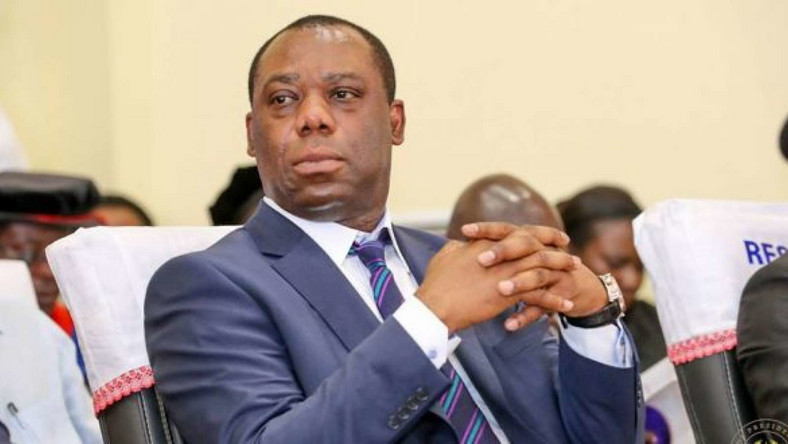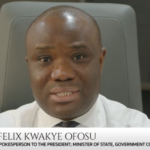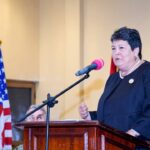The Ghana HIV & AIDS Network (GHANET) is caustioning government that hooking children on such intense sexuality education as contained in the Comprehensive Sexuality Education may end up “sexualizing them” and that it should should take note of all the concerns that the public has raised and, accordingly, withdraw the programme.
GHANET in the press statement copied Awake News and signed by its President, Mr. Victor Atta Ntumi said, after reviewing the CSE guidelines, “the document shows that there are some aspects that appear well-intentioned and would be of benefit to our children. For example, the aspects on gender, sexual violence, healthy relationships, good communication, family values etc. are quite essential and children ought to be introduced to them quite early in their lives.”
However, there are some aspects that also give cause for concern and according to Mr. Ntumi, “Firstly, according to the National CSE guidelines, the first module to be taught (Module 1 Session 1) for Pre-school (4 – 5 years) is: “What we believe in” and the last set of modules to be taught for SHS 3 (17 years) is: “Making changes in our lives and the world around us. The question that arises is this: why does a syllabus on sex education begin with “belief systems” and end with a “change process?” Rightly or wrongly, this gives the impression that the CSE is intended to change Ghanaian belief systems on sex and sexuality.”
For him, “a critical assessment of the National CSE guidelines also shows that the entire CSE is too value-laden. For example, under the objectives of the guidelines, concepts like “open mindedness” and being “non-judgmental” are introduced. Indeed, while these are very good concepts, generally, what are their implications when they are linked to sexuality?”
The Comprehensive Sexuality Education has generated serious public discussion with many Ghanaians kicking against it. Faith-based organizations has said the programme is “satanic” and must not be introduced to the schools. Others are also alleging that it is a ploy to introcude children to the LGBT agenda.
These concerns has forced the Education Minister, Dr. Opoku-Prepreh to deniel knowladge of the programme and that it is not part of the new curriculum and the teachers srouces’ park on the new curricum.
His claim has anger many teachers who took to social media to expose the Minister saying the CSE has been mentioned in Page 11 of their resource pack.
Former Deputy Minister of Education, Samuel Okudzeto Ablawah has also alleged that government received about $22m from the Swidish government and wondering how government is going to justify how that money was spent if the programme has been dropped.
But the Ghana Education Service (GES) has refuted suggestions that the CSE being pursued is aimed at promoting lesbian, gay, bisexual, and transgender (LGBT) rights in the country.
The GES further added that certain additions to the CSE manual has not been approved by the National Council for Curriculum and Assessment (NaCCA) hence the materials that have been heavily circulated on social media are yet to be authorised to be taught in schools.
A press release by the Head of Public Relations at the Ghana Education Service (GES), Cassandra Twum Ampofo, on Monday, 30 September 2019, said: “Indeed, on the 29 of April 2019, the Ghana Education Service wrote to the Acting Executive of the National Council for Curriculum and Assessment to request the insertion of the phrase ‘within the acceptable cultural values and norms of the Ghanaian society’ in the third objective of page 3 of the CSE guidelines in circulation. The insertion has not been made yet and, therefore, GES has not finally approved the CSE guidelines being discussed on various media platforms”.
The release explained that “the new standard-based curriculum being implemented has nothing to do with LGBT issues, masturbation or explicit display/labelling of intimate body parts” as being suggested by some anti-LGBT campaign groups, the clergy and a section of the public.
Read the full statement:
STATEMENT BY GHANA HIV & AIDS NETWORK ON THE NATIONAL CSE GUIDELINES
October 2, 2019
For Immediate Release
The Ghana HIV & AIDS Network (GHANET), having studied and analyzed the National Comprehensive Sexuality Education (CSE) Guidelines, and having followed the public debate on the subject, wishes to make the following statement:
Our review of the document shows that there are some aspects that appear well-intentioned and would be of benefit to our children. For example, the aspects on gender, sexual violence, healthy relationships, good communication, family values etc. are quite essential and children ought to be introduced to them quite early in their lives. However, there are some aspects that also give cause for concern as follows:
1. Firstly, according to the National CSE guidelines, the first module to be taught (Module 1 Session 1) for Pre-school (4 – 5 years) is: “What we believe in” and the last set of modules to be taught for SHS 3 (17 years) is: “Making changes in our lives and the world around us. The question that arises is this: why does a syllabus on sex education begin with “belief systems” and end with a “change process?” Rightly or wrongly, this gives the impression that the CSE is intended to change Ghanaian belief systems on sex and sexuality.
Making specific references to some of the portions of the Mr. Ntumi said there is enough “reason that some have claimed that whole CSE appears to be a foreign imposition on the country”
“Secondly, according to the National CSE guidelines, the CSE is based on the Bogota Declaration of 2010 which, among others, talks about respect for “human rights and diversity, with sexuality education affirmed as a right.” Again, the question that arises is this: if the CSE was formulated based on the Bogota Declaration, then what is the meaning of “diversity” in this context, especially when it is linked to sexuality?
“Thirdly, there are 21 references in the bibliography of the National CSE guidelines and a careful study of that shows that only three of them can be linked to the Ghana Education Service (GES), Ghana Health Service (GHS), and Ghana Statistical Service (GSS). All the others are either foreign or foreign sponsored. This gives the impression, rightly or wrongly, that the contents are highly deficient in the specificities of Ghanaian cultural norms, beliefs and practices. It is for this reason that some have claimed that whole CSE appears to be a foreign imposition on the country.”
2. Secondly, according to the National CSE guidelines, the CSE is based on the Bogota Declaration of 2010 which, among others, talks about respect for “human rights and diversity, with sexuality education affirmed as a right.” Again, the question that arises is this: if the CSE was formulated based on the Bogota Declaration, then what is the meaning of “diversity” in this context, especially when it is linked to sexuality?
3. Thirdly, there are 21 references in the bibliography of the National CSE guidelines and a careful study of that shows that only three of them can be linked to the Ghana Education Service (GES), Ghana Health Service (GHS), and Ghana Statistical Service (GSS). All the others are either foreign or foreign sponsored. This gives the impression, rightly or wrongly, that the contents are highly deficient in the specificities of Ghanaian cultural norms, beliefs and practices. It is for this reason that some have claimed that whole CSE appears to be a foreign imposition on the country.
4. Fourthly, a critical assessment of the National CSE guidelines also shows that the entire CSE is too value-laden. For example, under the objectives of the guidelines, concepts like “open mindedness” and being “non-judgmental” are introduced. Indeed, while these are very good concepts, generally, what are their implications when they are linked to sexuality?
5. Fifthly, putting everything together, the National CSE guidelines raise a major concern which is the fact that, hooking children on such intense sexuality education may end up “sexualizing them”. That is to say, their minds would be preoccupied with sex than any other thing else. This should be of concern given how addictive sex can be, whether in thought or in practice.
6. In view of the above, we wish to call on the GES, to take note of all the concerns that the public has raised and, accordingly, withdraw the CSE. GHANET supports sex education in our schools but we believe it must be sensitive to the norms, beliefs and practices of the people of Ghana.
SIGNED
VICTOR ATTA NTUMI
PRESIDENT
By: Efo Korsi Senyo | awakenewsroom.com













